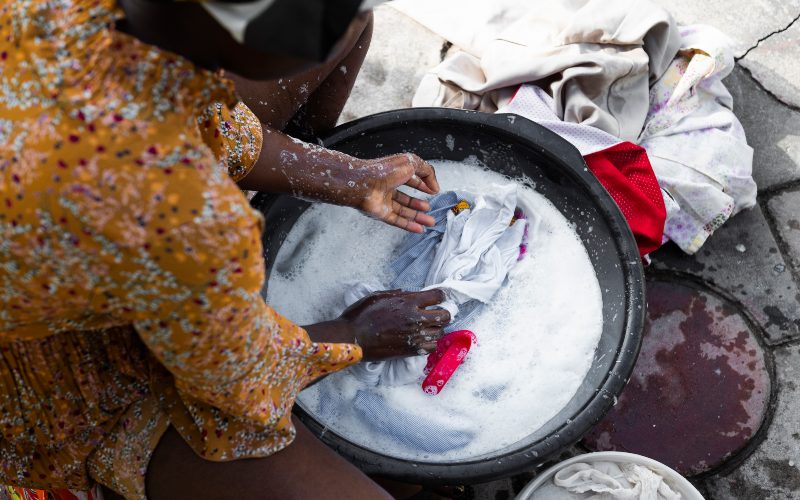Study finds Kenya’s unpaid household labour worth Sh2.5 trillion annually

Unpaid domestic and care work covers two major categories, unpaid domestic work such as cooking, cleaning and laundry, and unpaid care work, which includes childcare and elder care.
Kenya’s unpaid household labour is valued at Sh2.54 trillion annually, accounting for nearly a quarter (23.1 per cent) of the country’s total GDP, according to a study by the Kenya National Bureau of Statistics (KNBS).
The findings are part of the inaugural Kenya Household Satellite Account on Unpaid Domestic and Care Work (HSA), which seeks to capture the economic worth of work that sustains homes and communities but remains excluded from formal national accounts.
More To Read
- High-rise living in Nairobi’s Pipeline estate is stressful: How men and women cope
- World Bank upgrades Kenya’s growth outlook to 4.9 per cent, warns of elevated risks
- Africa’s share of global extreme poverty rose by 30 per cent in 10 years - World Bank
- Kenya’s economy can only absorb 250,000 graduates annually, Labour PS tells Senate
- Shrinking opportunities, growing skills gap: What youths say they need to thrive
- Chinese national sacked after being filmed assaulting Kenyan worker
Unpaid domestic and care work covers two major categories, unpaid domestic work such as cooking, cleaning and laundry, and unpaid care work, which includes childcare and elder care.
Notably, unpaid domestic work makes up a substantial share (88.7 per cent) of the UDCW, representing a value of Sh1.99 trillion.
On the other hand, unpaid care work accounts for the remaining 11.3 per cent.
“This disparity highlights the predominance of routine household maintenance and upkeep within the broader context of unpaid work,” KNBS said.
Among specific activities, nutrition is marked the most economically significant, valued at Sh1.27 trillion, nearly half of the total UDCW.
This is followed by housing services (Sh503.7 billion) and clothing services (Sh353.1 billion).
Other components, such as management services (Sh97.1 billion), household travel (Sh69.9 billion), and pet care (Sh668 million), also formed part of this massive yet unaccounted-for economy.
Ideally, the findings suggest that if unpaid household work were formally recognised, Kenya’s nominal Gross Value Added (GVA) would rise by about 23.1 per cent.
Nutrition alone would raise GVA by 11.5 per cent, while housing and clothing activities would increase it by 4.6 per cent and 3.2 per cent, respectively.
KNBS notes that this recognition could have profound implications for economic planning, job creation and GDP growth projections.
Additionally, the report reveals that the burden of unpaid work remains highly unequal.
It highlights that women spent 25.8 billion hours on unpaid domestic and care work compared to 4.8 billion hours by men.
Women dedicated the most time to food and meal preparation, 14.7 billion hours, while men spent 2.2 billion hours. Women also carried out the majority of childcare, spending 3.0 billion hours compared to men’s 310 million.
Men’s relative contribution was higher in home maintenance and repair, where they spent 158.2 million hours.
Yet, overall, the findings underscore a sharp gender gap in unpaid labour, a factor that continues to reinforce gender inequality in labour force participation and income distribution.
On average, the statistics body reveals that if unpaid domestic and care work were remunerated, each woman aged 15 years and above would have earned Sh118,845 annually, compared to Sh22,676 for men, the report notes.
Top Stories Today












































